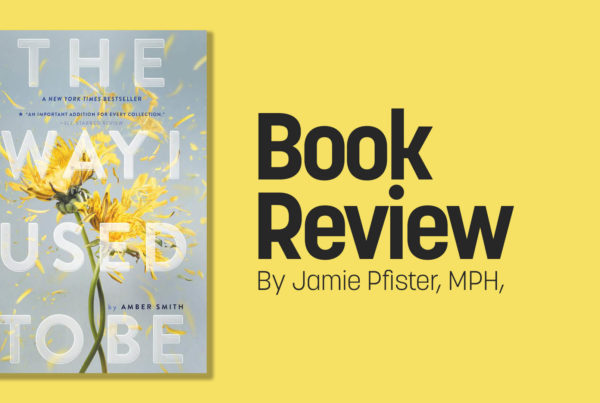According to the Bureau of Labor Statistics and a 2014 Gallup poll, the average American works more than 40 hours a week – and in many cases, more than 50 hours a week.
In an article titled “The US is the Most Overworked Country in the World” by G.E. Miller of 20-Something Finance we read about several shocking realities. He quotes the Center for American Progress on the topic of work and family life balance: “In 1960, only 20 percent of mothers worked [outside the home]. Today, 70 percent of American children live in households where all adults are employed.” The author goes on to paint a jolting picture of the American worker’s experience compared to workers in other countries:
- Over 100 countries have laws that limit the length of a work week; the U.S. does not.
- According to the ILO, “Americans work 137 more hours per year than Japanese workers, 260 more hours per year than British workers, and 499 more hours per year than French workers.”
- Data from the U.S. Bureau of Labor Statistics infers that American workers have increased their productivity by about 400% since 1950.
Just reading about these facts could make anyone tired! Let’s take this picture and superimpose it over the life of an American worker in the field of healthcare. What we find is something even more concerning than a simple lack of work-life balance: the American Public Health Association cites growing prevalence of burnout among health care professionals. The jobs are demanding and highly stressful. Life-and-death situations are part of the everyday work routine. In addition to burnout we see healthcare workers suffering compassion fatigue and in some cases vicarious trauma. There is a growing body of research about these phenomena and with good reason; the more we understand about how these conditions develop and what we can do to manage and prevent them, the better off our workers will be.
KidsPeace recognizes the risk associated with a burned-out, fatigued and traumatized workforce. In the fall of 2018 the leaders of the KidsPeace Critical Incident Response Team were racking our brains for a solution to a problem. We had repeated requests to provide support to staff who were experiencing symptoms of compassion fatigue and vicarious trauma, but the methods we were using at that time did not lend themselves well to these issues. We were used to helping staff debrief single traumatizing events, but not so much experience with chronic exposure to stress.
As they say, “necessity breeds invention,” and so it did!
The CIRT leaders developed a completely mobile program; a veritable café of relaxation activities, that could be deployed to stressed out staff quickly and efficiently. The program, now known as “OASIS SPACE,” consists of 12-15 separate relaxation activities and exercises that target different preferences and interests. Some examples: mandala coloring, water painting, aromatherapy, sound therapy, trauma-informed yoga mini-sessions, animal therapy, a garden box, magnetic sculptures, squishy items, diamond art, puzzles and much more. The space is set up in under 30 minutes in a room near where the staff are working. It is facilitated by members of the KidsPeace Critical Incident Response Team who are then available to talk if needed. After spending about 45 minutes trying different strategies the participants are provided with materials that provide guidance for ongoing wellness and they are referred to KidsPeace’ Employee Assistance Program for further support when needed.
Surveys taken by participants at the end of OASIS SPACE sessions show a unanimous support for continuing the program and expanding it. Associates have told us that attending OASIS SPACE has made the rest of their day calmer. We hear that our staff members find the program relaxing and enjoyable. Many of them implement the strategies in their lives as a way to cope with chronic stressful scenarios in the workplace. Supervisors have caught on and are creating mini-OASIS areas in their work areas, or providing bins of supplies at staff meetings. All in all, it seems that having OASIS SPACE at KidsPeace has been a real benefit to our associates.
SELF-CARE BASICS
You may be surprised to understand what all is involved in good self-care. Many people really think of self-care as going to the spa or lighting candles, and it’s so much more than that. It’s looking at your whole life, your whole self, and making intentional decisions in favor of preserving yourself in all areas. Think about the following categories of self-care.
- Appropriate attention to life relationships
- Intimacy / intimate relationships
- General pacing of life activities
- Setting and maintaining limits for yourself
- Healthy sleep habits
- Well-rounded nutrition
- Attention to hygiene and outward appearance
- Maintenance of general physical health (regular wellness appointments – eyes, teeth, regular bloodwork, prevention, taking medications, etc.)
- Attention to mental health
- Providing yourself a time for recreation, hobbies and leisure
- Attention to physical fitness / regular physical activity
- Maintenance of finances / financial planning for the future
- Regular care of home and vehicle
- Organization and cleanliness of your environment at home, work, vehicle, etc.
- Attention to faith/spirituality and faith/spiritual matters / connection to a faith/spiritual community
- Attention to learning and healthy professional development
Self-care is engaging in self-preservation. It’s engaging in strategies that protect our own well-being and happiness. It’s an intentional activity designed to care for our mental, emotional, spiritual and physical health.
For those of us whose whole workday revolves around caring for others this is essential. We cannot care for others if we are not caring for ourselves.
Are you interested in learning more about the KidsPeace Critical Incident Response Team and OASIS Space? KidsPeace offers training and consultation and we’d be happy to talk with you more! Please contact Jodi Whitcomb, KidsPeace’s CIRT Agency Coordinator for more information – Jodi.Whitcomb@kidspeace.org.






